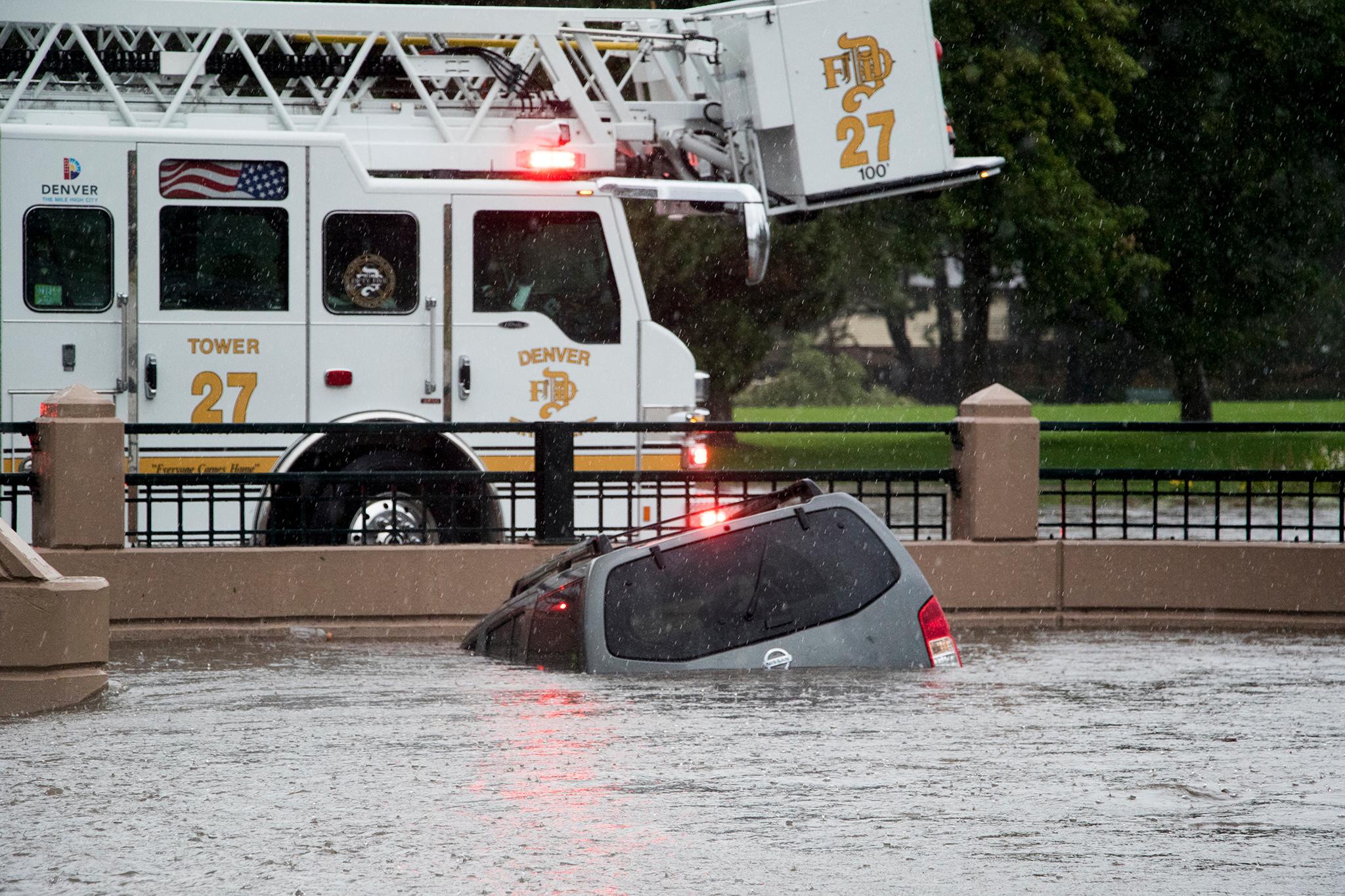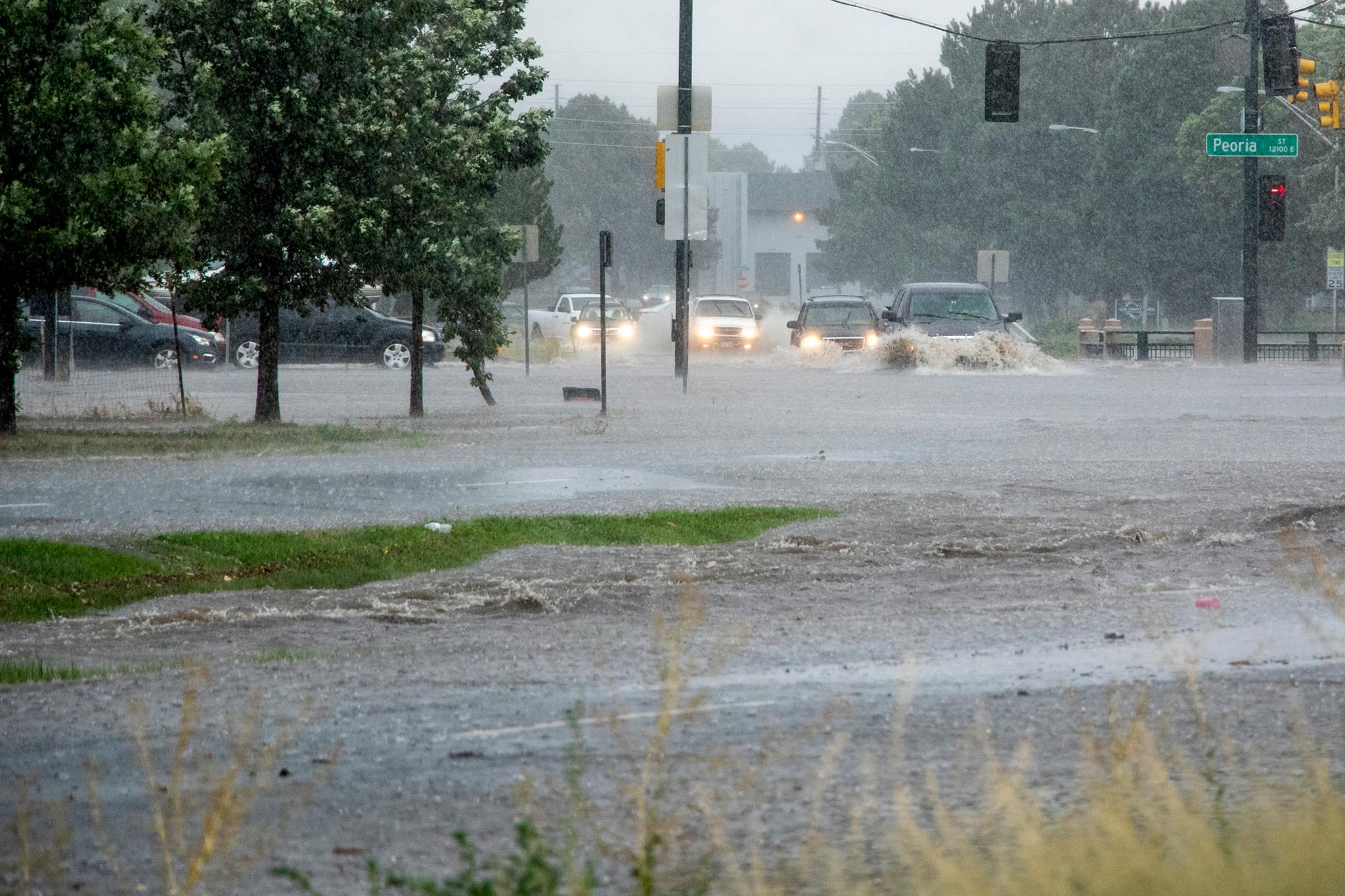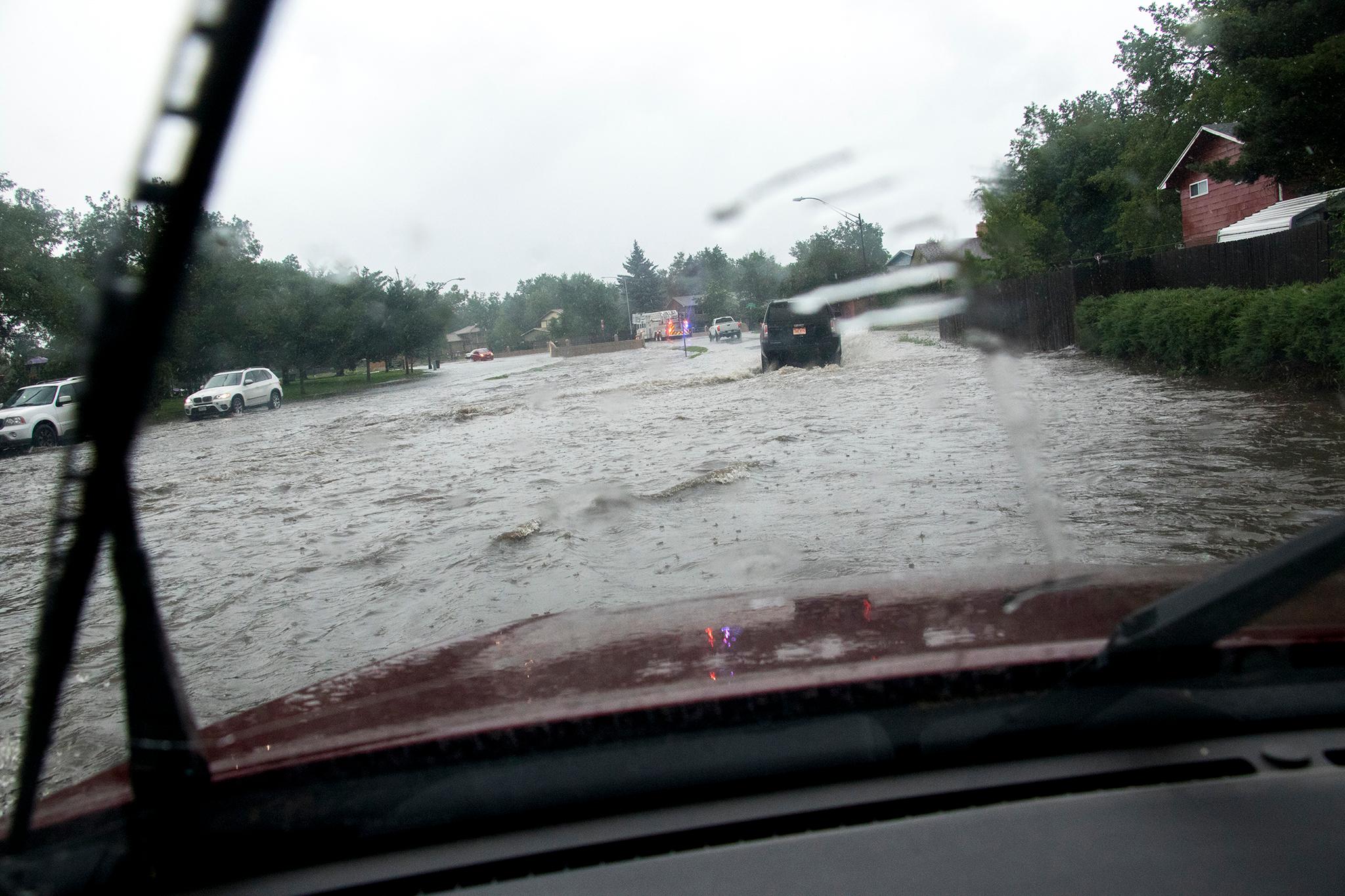By all accounts, some Denver neighborhoods saw a lot of water yesterday. It was the official kickoff of monsoon season in the city, and I saw cars swamped in the middle of intersections in Montbello.
But Todd Dankers, a meteorologist with the National Weather Service, who has been forecasting Front Range weather for years, said yesterday's event was pretty normal.
It was "certainly was a good amount of rain" but also "typical rather than an extraordinary event."
The heavy rain didn't cover the whole city, Dankers said: "Aurora and Montbello picked up the rain yesterday, but there were other parts of town that only picked up a few inches."
Greg Pixley, spokesperson for Denver Fire Department, agreed.
"It’s really not uncommon," he said. "These monsoonal rains are typical this time of year. We’ll see some more I believe."
He calculated that Denver Fire responded to about 28 weather-related calls yesterday, and that number is also pretty standard.
David Bennetts, manager of operations and development for the city's Ubran Drainage and Flood Control District, said even though this was a normal event, human interaction with drainage systems can result in flooding on the street.
"The inlets could have been covered with trash," he said. "We’re regularly picking up trash and debris, shopping carts, bikes."
Outside of flood control, other city agencies have also reported that garbage and the like gets in the way of their work.
So, impressive, sure, but yesterday wasn't that big a deal, if you're talking rainfall.

In terms of safety: it's still a big deal -- depending on how you approach it.
Even if the floodwaters over parts of the city was, historically speaking, business as usual, every authority on heavy rain said people still need to be very careful.
"People need to be ready," Dankers said, "You gotta be careful driving in that heavy rain."
Pixley agreed.
"The outcome can be catastrophic and we want people to use common sense," he said. "It’s better to take a five-minute detour than to suffer some significant consequence."
If you see a giant pool of standing water in an intersection, he said, don't drive though it.
"The rule of thumb is six inches of water will begin to float your car," Bennetts said.
Rescuing people who try it is especially frustrating for Denver Fire, Pixley said, because the department lost a firefighter about 20 years ago when he was attempting to save someone whose car floated away.
"The top of the water might look calm, but underneath there can be significant turbulence," a force that he said dragged that firefighter under.

Especially since these monsoon rains tend to fall in the late afternoon, when lots of people are on the road, Dankers said you should be extra vigilant. Especially since monsoon season has just begun.
"This is an event that can happen once or twice every year. Now we’ve got this one," he said, but "later this week more moisture will be over us. We could see another one this week. No promises."













